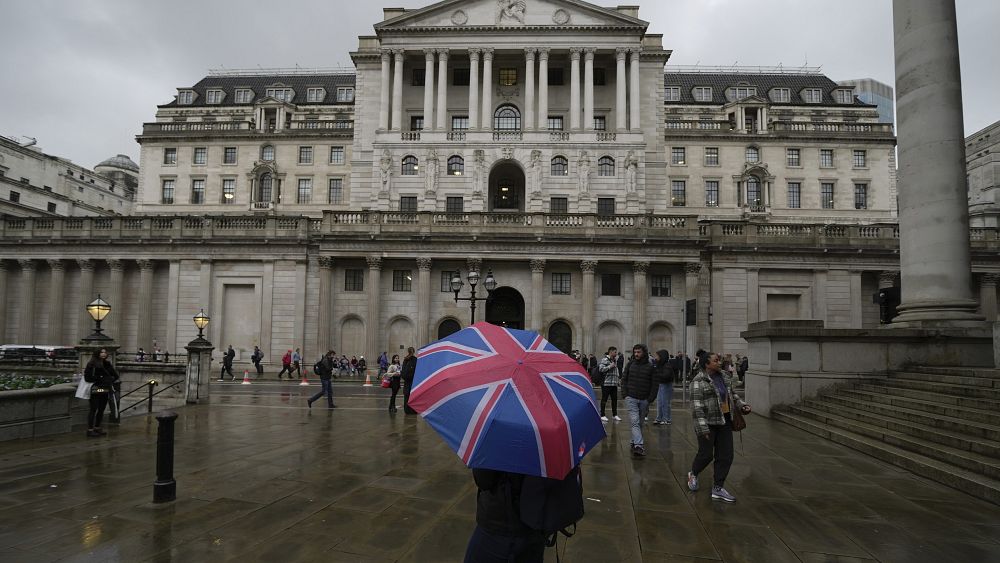Highest rise in UK interest rates since 1989 despite ‘looming long recession’

The Bank of England raised interest rates by the most since 1989 on Thursday but it also warned that Britain faced a long recession and told investors borrowing costs were likely to go up by less than they expect.
The BoE increased Bank Rate to 3% from 2.25% even as it said Britain’s economy might not grow for another two years, a slump longer than during the 2008-09 financial crisis.
The pound fell sharply and was down about 2% against the U.S. dollar at 1315 GMT, touching its lowest since mid-October when Britain was in a political crisis triggered by former prime minister Liz Truss’ tax-cutting plans.
British finance minister Jeremy Hunt said the Bank of England’s interest rate hike on Thursday would be “very tough” for families with mortgages and businesses with loans.
He said there was a global economic crisis and the best the government could do was to bring down debt.
On Wednesday, the U.S. Federal Reserve also hiked rates by 75 basis points but signalled U.S. borrowing costs were likely to rise more than anticipated to crush inflation.
The BoE said it now expected inflation will hit a 40-year high of around 11% during the current quarter. But it also thinks the economy has entered a recession that could mean it contracts in both 2023 and 2024 and shrinks by 2.9% in total.
Unemployment would rise steadily to 6.4% by late 2025, nearly doubling from a current 3.5%, its lowest rate since the mid-1970s.
Thursday’s rise in borrowing costs — the biggest in 33 years apart from a failed attempt to support the pound on Black Wednesday in 1992 — was in line with economists’ expectations in a Reuters poll, but was not unanimous.
The majority of the nine-member Monetary Policy Committee said rates would need to rise higher still, although probably not as high as the 5.2% that was priced into financial markets when the BoE finalised its forecasts.
Earlier on Thursday, markets were expecting Bank Rate to peak at around 4.75%. After its announcement, that peak had fallen to under 4.7% in September next year.
Central banks across the Western world are responding to similar challenges. Inflation has rocketed over the past year due to residual labour shortages and supply-chain bottlenecks since the COVID pandemic and — in Europe’s case — a big increase in energy bills since Russia invaded Ukraine in February.
The BoE has faced weeks of political and financial market chaos since its last rate rise on September 22.
Just a day later, then-prime minister Truss’s government launched an unfunded £45 billion (€51.6 billion) package of tax cuts that received a damning response from investors that pushed sterling to a record low against the dollar and forced the BoE to prop up the bond market to help pension funds.
Truss had to resign after 44 days in office.
Markets are now more stable, with British government borrowing costs broadly back to where they were before the turmoil.
The BoE’s policymaking is made especially tricky by a lack of clarity over future government policy.
While most of Truss’s tax cuts have been reversed, new Prime Minister Rishi Sunak has indicated there will be a squeeze on public spending and potentially higher taxes, the scale of which will not become clear until a fiscal statement on November 17.
Highest rise in UK interest rates since 1989 despite ‘looming long recession’
Source: Reporters View PH
No comments